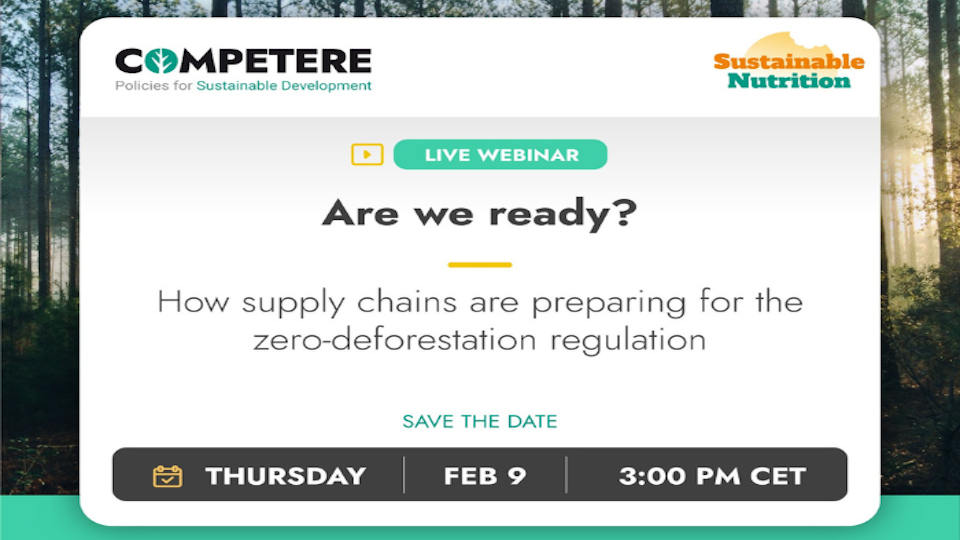Are We Ready for Zero Deforestation? – Competere.eu – Pietro Paganini
The European Union recently announced a ban on the import of seven commodities that contribute to global deforestation, including cocoa, coffee, cattle, palm oil, rubber, soy, and timber. To help businesses prepare for this new regulation, Competere.eu hosted a roundtable discussion with three distinguished speakers: Felipe Carazo, Head of Public Sector Engagement at Tropical Forest Alliance; Xiomara Lima, Corporate Communication Manager at Grupo HAME; and Vijaya Subramaniam, Head of Peat Ecosystem & Biodiversity Unit at MPOB.
During the discussion, the speakers provided insights into the state of the zero deforestation regulation and how producing countries are preparing for it. Over 150 participants from around the world attended the discussion, highlighting the importance of this topic.
The EU’s new regulations will require strict due diligence for the seven banned commodities to enter the European market, regardless of whether deforestation is legal or illegal. The regulations also include strict traceability requirements and a country benchmarking system. Businesses have 18 months to implement the new rules, with micro and small enterprises given a longer adaptation period.
The roundtable discussion addressed the challenges and impacts of the regulation on both producer countries and food processors. It also discussed how small operators can comply with the new rules.
Here you can download the key takeaways >>>
Enjoy a brief video summary
Here you can watch the full recordings
Are We Ready for Zero Deforestation?
The European Union has agreed to ban the import of 7 commodities that cause deforestation: cocoa, coffee, cattle, palm oil, rubber, soy, and timber.
This decision is driven by the urgency to change European practices as Europe is responsible for a significant portion of global deforestation. Europe imported goods are responsible for an average of 10-16% of global deforestation, making the EU the second-largest importer of deforestation.
WATCH IT AGAIN: PALM OIL RISING STARS >>>
The EU has agreed on strict due diligence requirements for these goods to enter the European market, including tackling deforestation regardless of whether it is legal or illegal, strict traceability requirements linking the commodities to the farmland where they were produced, and a country benchmarking system.
Operators and traders will have 18 months to implement the new rules, with micro and small enterprises given a longer adaptation period.
WATCH IT AGAIN: SUSTAINABLE PALM OIL FOSTERS BIODIVERSITY >>>
Technical and crucial obligations have yet to be clarified, and the new rules engage the full supply chains of the 7 commodities, upstream and downstream, in both foreign producing and EU importing countries.
Given the stringent regulations and limited time for compliance, are producing and exporting countries prepared for the changes? Have they implemented new practices and tools to meet the new requirements? What is their current status? How can small operators comply with the new rules?
WATCH IT AGAIN: MISLEADING LABELS – WEBINAR ORGANISED BY CPOPC >>>
On February 9, Competere hosted a roundtable discussion to provide insight into the challenges and impacts of the regulation on both producer countries and food processors. A panel of esteemed experts spoke on the topic.

